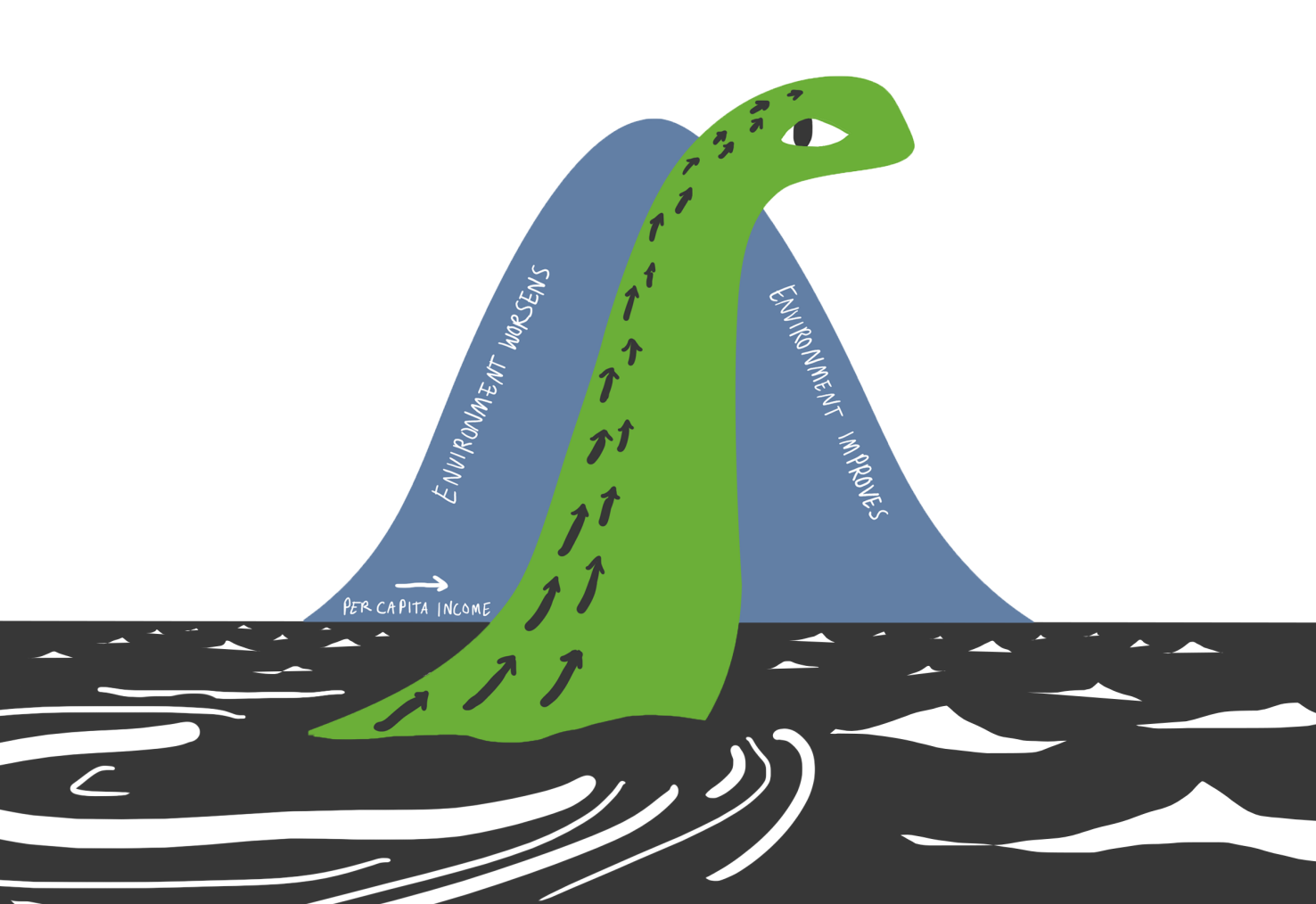Since its birth, the industrialization process has gone hand in hand with the increase in greenhouse gas emissions. In fact, this process has always required the employment of fossil fuels as the primary source of energy, but this has obviously come at the expense of the planet. The question today is: is it possible to detach economic growth from the harmful increase in global warming caused by these CO2 emissions? In order to do so, economies have to engage in the process of decoupling.
Decoupling means putting an end to the connection that runs between the growth in GDP and the harm that this causes to the environment. For this to happen, there needs to be a shift in the economies, which have to find new ways to fuel their growth – ways that do not rely on the consumption of fossil fuels.
We observe decoupling when GDP grows while greenhouse gas emissions remain constant or shrink. There are two instances of decoupling: relative and absolute. Relative decoupling is when the rate at which the consumption of fossil fuel grows is slower than the rate of growth of the economy, while absolute decoupling is when we have economic growth on one side, but the use of fossil fuels declines.
But are countries actually decoupling? What has emerged from the COP27 conference is that we have reasons to be optimistic: this link between economic growth and carbon emission seems to be broken. Emissions have been cut in 33 countries: two-thirds of these are European countries, joined by America and Australia. However, it would be wrong to assume that this trend is a luxury reserved only for the most developed countries. Eastern Europe joined it by showing increased decoupling after the collapse of the Soviet Union, and the same goes for Mexico, Argentina, and Uruguay.
Given that this is a good prospect for our planet, we should investigate the reasons which are allowing this shift. There are two ways to decouple: by making output less capital-intensive or by using greener energies. In the past decade, the slowdown in emissions has been caused mainly by the former: countries have started to employ more energy-efficient technologies.
The second reason that accounts for increased decoupling is the fact that, as economies become more prosperous, they expand their service sector and shrink the manufacturing one. However, at first, this meant that the more affluent countries were lowering the production of output in their domestic countries, only because they were outsourcing it from foreign countries like Bangladesh. This could obviously not be considered a successful attempt in reducing emissions, as it was only moving the problem from one country to another. But the latest trends show that the countries to which manufacturing has been outsourced are indeed emitting less carbon themselves. These countries are now creating fewer emissions than the manufacturing process used to account for, hence they are engaging in relative decoupling.
As much as this is good news for the environment, unfortunately, it is simply not enough. Studies show that we are only experiencing relative decoupling, but it is unclear whether absolute decoupling can be achieved globally. There has been an instance of it from 2014 to 2016, however, it was temporary. Many economies have later relied heavily on coal to recover after the enormous declines they experienced during the COVID-19 pandemic. Poorer countries have still not been able to break this link between emissions and growth and this is the reason why we can still not say that there is a slowdown in global emissions. The good news is however that there is evidence showing that these countries are industrializing in a different way compared to the first industrial countries: countries like Vietnam and India, which have an expanding production sector, are still powered by coal, but they are using it more efficiently.
The goal is now to speed up the pace at which decoupling is happening. As mentioned, countries are using technologies that are more energy-efficient, but what has been missing is the shift to greener sources to power economic growth in the first place. Clearly, it is not enough to use machinery that is capable of using coal in a more efficient way, if this means that economic growth still relies on fossil fuels. What needs to happen is an actual shift towards an economy that is powered by better sources. Countries should indeed invest in renewable and greener forms of energy and successfully implement them so that we could experience absolute decoupling. Experts suggest that climate policies are fundamental for the realization of this shift as their aim should be making structural changes to the economies, thus breaking this trend of carbon-intensity which is still so prevalent in the productive sector.
Finally, the stress is on the importance of kick-starting this process from the daily life of people, making it greener through processes of electrification which could be used in different ways, such as in the heating systems of houses or in public and private means of transport. This would not only lead to a big difference at an environmental level, but also improve general living standards.
Bibliography:
https://www.climateforesight.eu/seeds/decoupling-emissions-from-economic-growth/




